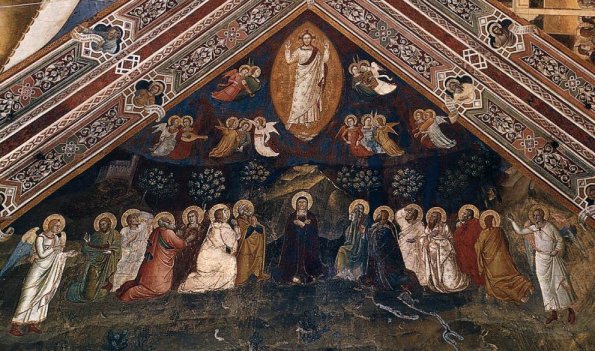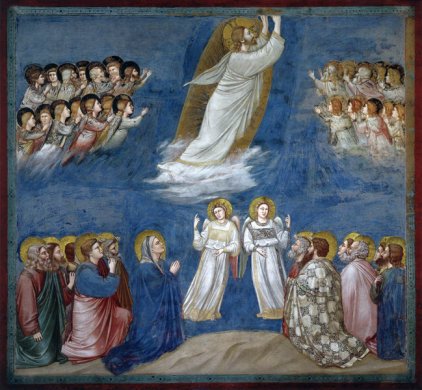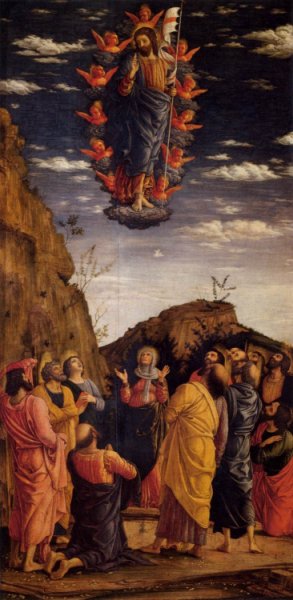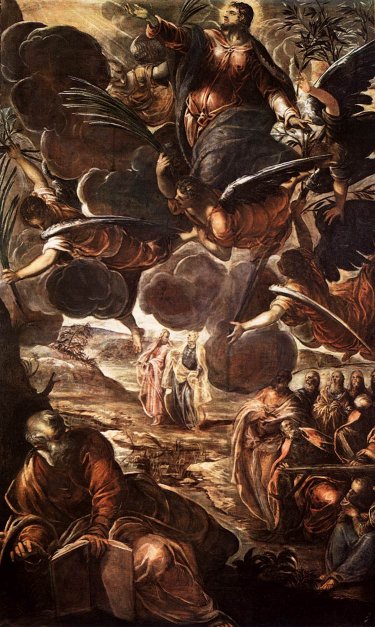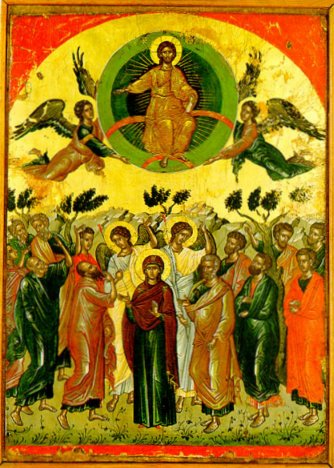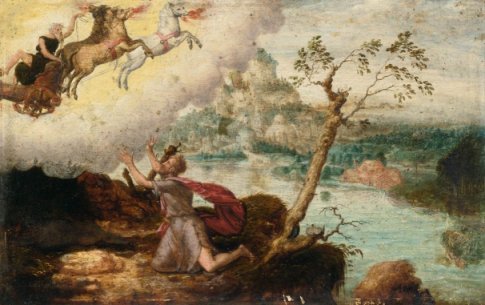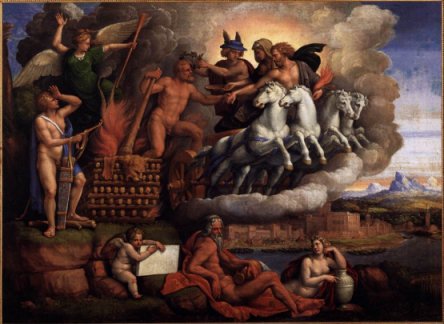|
The Passion of Christ |
|
|
The Ascension |
|
|
This moment is mentioned briefly in the Gospels of Mark and Luke, but the fuller account is found in Chapter one of The Acts of the Apostles: 'When they therefore were come together, they asked of him, saying, Lord, wilt thou at this time restore again the kingdom to Israel? And he said unto them, It is not for you to know the times or the seasons, which the Father hath put in his own power. But ye shall receive power, after that the Holy Ghost is come upon you: and ye shall be witnesses unto me both in Jerusalem, and in all Judaea, and in Samaria, and unto the uttermost part of the earth. And when he had spoken these things, while they beheld, he was taken up; and a cloud received him out of their sight. And while they looked steadfastly toward heaven as he went up, behold, two men stood by them in white apparel; Which also said, Ye men of Galilee, why stand ye gazing up into heaven? this same Jesus, which is taken up from you into heaven, shall so come in like manner as ye have seen him go into heaven. Then returned they unto Jerusalem from the mount called Olivet, which is from Jerusalem a sabbath day's journey.' (v 6 - 12) Let's look at two early versions: |
|
|
|
|
|
Who is there? Both versions include the Virgin Mary. She is not specifically mentioned in this extract from Acts, though she is present a little later when the Disciples return to Jerusalem. Giotto is more accurate than Andrea, as he includes only eleven disciples: the new disciple, Matthais, had not been selected at this point. Two later versions. The format of the paintings reflects the Ascension theme. Mantegna goes for twelve disciples! |
|
|
|
|
| An interesting version dating from 1546: an icon from Mount Atholl by Theophanus the Cretan. | |
|
|
|
|
Ascension
myths Ascension stories can be found in many cultures. A number of Old Testament prophets were assumed into heaven, most notably Elijah and Enoch. A non-Biblical tradition tells of the Assumption of the Virgin. Theologians agonise over whether the term 'ascension' can be applied to anyone other than Christ, and what precisely the difference is between the words ascension and assumption. An interesting parallel is the story of the apotheosis (another word to think about!) of Hercules. He was, of course, a son of Zeus. (Zeus had plenty of offspring.) Robert Graves describes the event this way: 'The thunderbolts had consumed Heracles's mortal part. He no longer bore any resemblance to Alcmene but, like a snake that has cast its slough, appeared in all the majesty of his divine father. A cloud received him from his companions' sight as, amid peals of thunder, Zeus bore him up to heaven in his four-horse chariot: Athene took him by the hand and solemnly introduced him to her fellow deities.' (The Greek Myths book 2) It is interesting to compare this with the Old Testament account of the ascension/assumption of Elijah: 'And it came to pass, as they still went on, and talked, that, behold, there appeared a chariot of fire, and horses of fire, and parted them both asunder; and Elijah went up by a whirlwind into heaven.' (2 Kings 2 v 11) This is how artists have envisioned the two scenes. |
|
|
|
|
